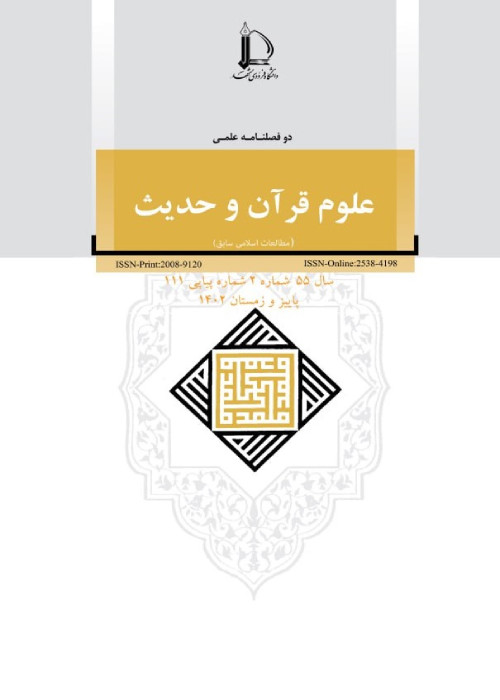Specification or Generalization in Determining the Referents of the Promised ones in Verse 55 of Surah al-Noor
Commentators have expressed different views about those who are the referents of Divine promises in verse 55 of Surah al-Noor and each of them has usedvarious arguments to prove his opinion. Using a descriptive-analytical method, in this study, their comments and arguments have been collected and criticized. The findings show that in determining the instances of the promised ones in this verse, the commentators of two Islamic sects have generally adopted two approaches: specification of certain individuals or times and generalization. In other words, in the first approach, some of them have considered a specific group or time as the purpose of the promise in this verse; some Sunni exegetes have introduced the Two Scholars (Abu Bakr and Umar) or the four caliphs as the intention of this verse or have commented that this verse will be fulfilled on the Day of Resurrection. Still, in this study, their arguments were rejected. On the contrary, some Shiite commentators have limited the purpose of this verse to the household of the Prophet (Ahl al-Bayt) or the time of reappearance of Imam Mahdi (AS); this comment does not seem to be correct too, and instead of an exclusive referent, the reasons of these Shiite exegetes indicate the most perfect instance for this verse. The second approach also suggests that, unlike the first category, some of the exegetes of the two Islamic sects not only have not regarded this promise to be specific to a special person or time but also believed that whenever the conditions of faith and good deeds arise, this promise will be fulfilled. By examining their evidence, in this study, this view was preferred as the correct one. So, the innovation of this article is related to collecting all the comments in this regard and rejecting the popular Sunni view as well as suggesting that the famous Shiite perspective is comparative and not interpretive. In other words, the popular Shiite view isn't the explicit purpose of this verse; instead, it is the most perfect instance of the meaning of this verse. Also, the preferred view of this study, more than the famous Shiite perspective, can create unity between Shia and Sunni.
- حق عضویت دریافتی صرف حمایت از نشریات عضو و نگهداری، تکمیل و توسعه مگیران میشود.
- پرداخت حق اشتراک و دانلود مقالات اجازه بازنشر آن در سایر رسانههای چاپی و دیجیتال را به کاربر نمیدهد.


